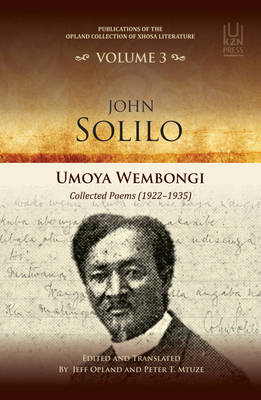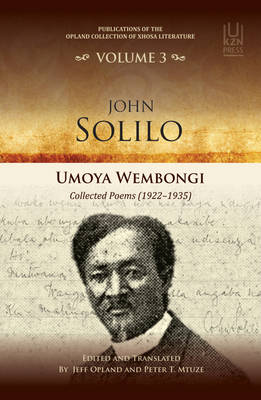
- Afhalen na 1 uur in een winkel met voorraad
- Gratis thuislevering in België vanaf € 30
- Ruim aanbod met 7 miljoen producten
- Afhalen na 1 uur in een winkel met voorraad
- Gratis thuislevering in België vanaf € 30
- Ruim aanbod met 7 miljoen producten
Zoeken
John Solilo
Umoya Wembongi Collected Poems (1922-1935)
€ 29,45
+ 58 punten
Omschrijving
For 40 years, between 1900 and 1939, John Solilo was a prolific contributor to Xhosa-language newspapers. His major literary contribution was his collection of poems, Izala. This volume is an exercise in reclamation and restitution. In restoring to the public domain the 65 poems that made up Izala and adding an additional 28 that were published in newspapers.
Specificaties
Betrokkenen
- Uitgeverij:
Inhoud
- Aantal bladzijden:
- 440
- Reeks:
Eigenschappen
- Productcode (EAN):
- 9781869143121
- Verschijningsdatum:
- 15/06/2016
- Uitvoering:
- Paperback
- Afmetingen:
- 150 mm x 230 mm

Alleen bij Standaard Boekhandel
+ 58 punten op je klantenkaart van Standaard Boekhandel
Beoordelingen
We publiceren alleen reviews die voldoen aan de voorwaarden voor reviews. Bekijk onze voorwaarden voor reviews.







